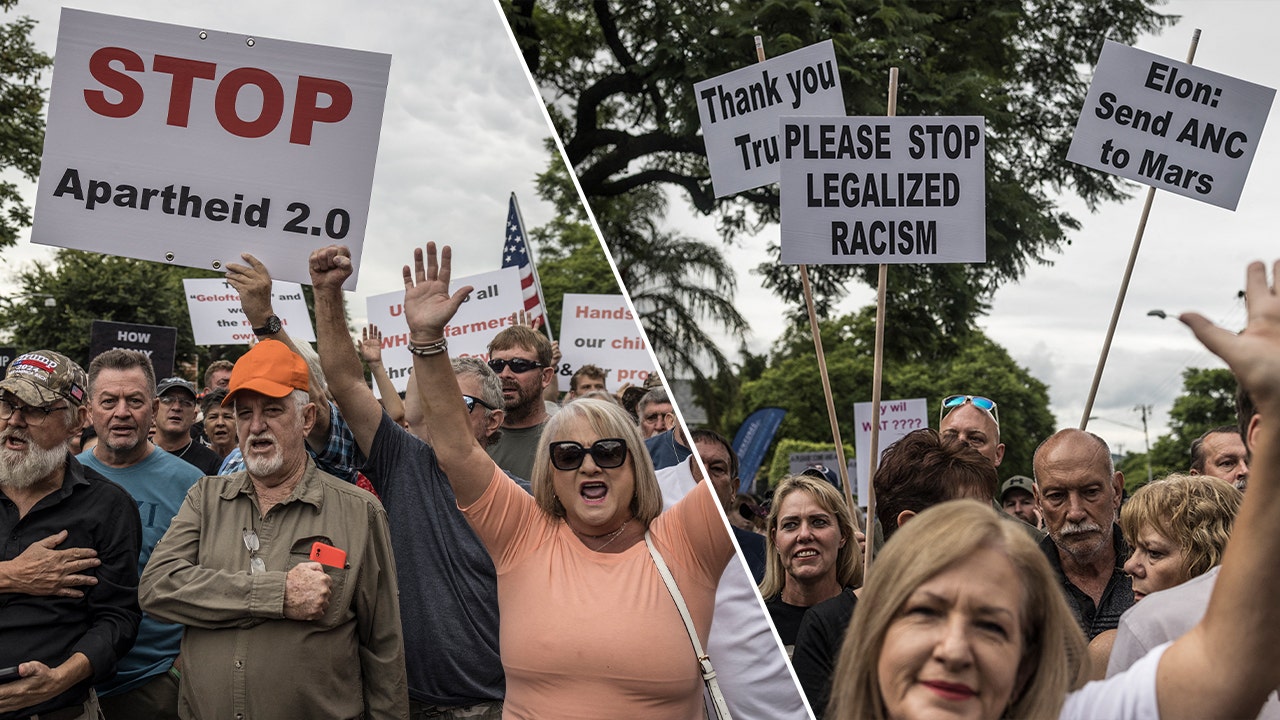Episcopal Church Refuses to Assist Resettlement of White South Africans Amid Controversy
The Episcopal Church halts its refugee resettlement partnership, citing racial justice, as Trump’s program fast-tracks white South Africans amidst claims of discrimination.
Subscribe to unlock this story
We really don't like cutting you off, but you've reached your monthly limit. At just $5/month, subscriptions are how we keep this project going. Start your free 7-day trial today!
Get StartedHave an account? Sign in
Overview
On May 12, 2025, a charter flight carrying 59 white South Africans landed in the U.S. as part of a Trump administration initiative claiming to support victims of discrimination. While welcomed at Dulles International Airport, Episcopal Migration Ministries announced it would terminate its decades-long partnership with the federal government, citing a commitment to racial justice. South Africa's government firmly denies allegations of persecution against Afrikaners, calling the claims 'imagined.' The controversy escalates as many other refugees remain in dire conditions, with calls for equitable treatment amidst this preferential resettlement for white South Africans.
Report issue

Read both sides in 5 minutes each day
Analysis
- The Trump administration's expedited refugee admissions for Afrikaners, coupled with a suspension of other refugee programs, raises ethical concerns regarding the prioritization of this group based on race rather than need.
- The Episcopal Church’s refusal to assist in the Afrikaner resettlement highlights moral objections to the administration's approach, citing a commitment to racial justice and concerns over preferential treatment for certain refugees over others who face severe hardships.
- The South African government's denial of systemic persecution against Afrikaners, alongside the claims of these refugees receiving preferential treatment in the U.S., undermines broader global refugee efforts and raises questions about the motivations behind the U.S. policy.
Articles (38)
Center (10)
FAQ
The Trump administration granted refugee status to the 59 white South Africans, specifically Afrikaners, on the basis that they were fleeing race-based discrimination and persecution allegedly occurring under South Africa's post-apartheid government, including claims of land confiscation and violence against white farmers.
South Africa's government has strongly denied allegations of persecution against Afrikaners, describing such claims as unfounded and asserting that Afrikaners remain among the country's most economically privileged groups.
Refugee advocacy groups have condemned the program, criticizing the Trump administration for prioritizing white South Africans while many refugees from war-ravaged countries remain unassisted. Additionally, the Episcopal Church announced it would terminate its resettlement partnership, citing its commitment to racial justice.
The program was initiated by an executive order signed in February 2025 by President Trump, allowing for expedited resettlement of Afrikaners fleeing what the administration described as race discrimination and racially discriminatory confiscation of land in South Africa.
History
- 6M

 4 articles
4 articles
- 6M

 4 articles
4 articles
- 6M

 3 articles
3 articles


























